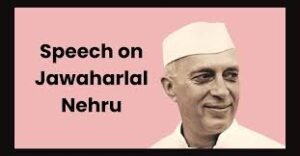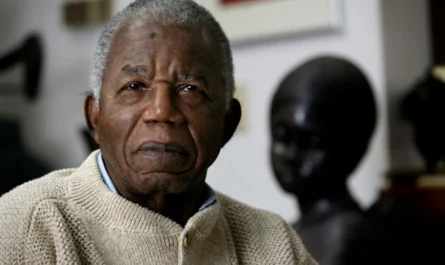Jawaharlal Nehru was born on November 14, 1889, in Allahabad, India. He was born into an affluent family, as the son of Motilal Nehru, a prominent lawyer, and Swaroop Rani. His family was originally from Kashmir and held considerable social standing. Nehru’s early education was handled privately at home by tutors, reflecting his family’s wealth and their commitment to a quality education.
At the age of 15, Nehru traveled to England, where he attended Harrow, one of the most prestigious schools, before moving on to Trinity College, Cambridge. His studies abroad deeply influenced his intellectual development and exposed him to Western ideals of freedom, liberalism, and democracy, which later shaped his political ideology. He completed his education with a degree in Natural Sciences and then joined Inner Temple in London to study law. This education prepared Nehru for a distinguished future in Indian politics.
Jawaharlal Nehru Age
Born in 1889, Jawaharlal Nehru witnessed and participated in some of the most transformative periods of Indian history. He was 58 years old when he became the first Prime Minister of independent India in 1947 and served until his death in 1964 at the age of 74. His long tenure allowed him to play a critical role in shaping modern India, implementing policies that impacted generations to come.
Jawaharlal Nehru Career
Nehru’s career was marked by his steadfast dedication to Indian independence and his vision for a secular, socialist, and democratic India. He was introduced to the Indian independence struggle after returning from England and soon became an active member of the Indian National Congress. His dedication to India’s independence was cemented after his 1916 meeting with Mahatma Gandhi. Inspired by Gandhi’s ideals, Nehru joined the Non-Cooperation Movement in the early 1920s, which aimed at peaceful resistance to British rule.
In 1920, Nehru organized the Kisan March in Pratapgarh District, Uttar Pradesh, advocating for farmers’ rights. His popularity and leadership skills were evident, and by 1923, he had become the General Secretary of the All India Congress Committee. During the 1930s and 1940s, Nehru faced multiple imprisonments due to his participation in freedom movements, and his commitment to the cause was unwavering. As India moved closer to independence, Nehru emerged as one of the most influential leaders, ultimately taking the helm as India’s first Prime Minister on August 15, 1947.
Jawaharlal Nehru Achievements
Jawaharlal Nehru’s achievements are deeply etched in the history of modern India. As Prime Minister, Nehru laid the foundation for India’s economic, social, and political future. He implemented moderate socialist economic reforms, initiated ambitious industrialization projects, and championed a vision of a secular nation that respected all religions and ethnicities. Nehru’s policies in education, healthcare, and infrastructure development helped the country make significant strides toward modernization.
A proponent of secularism, Nehru was committed to ensuring that all citizens, including minorities, were protected and treated fairly. His dedication was evident when, during the 1947 Partition riots, he personally saved a Muslim tailor from an attack and refused to replace his Muslim cooks, despite public pressure. On the global stage, Nehru introduced India’s policy of non-alignment, positioning the country as a neutral party during the Cold War, which allowed India to maintain diplomatic relations with both the United States and the Soviet Union.
Nehru also authored several influential books, including An Autobiography and The Discovery of India, which gave insight into his thoughts on India’s culture, heritage, and his vision for its future.
What was Jawaharlal Nehru’s role in India’s independence movement?
Nehru played a central role in the Indian independence movement, becoming a prominent leader within the Indian National Congress and working closely with Mahatma Gandhi. He was instrumental in organizing protests and advocating for self-rule, and he spent many years imprisoned for his involvement in the struggle against British rule.
What were Nehru’s contributions as India’s first Prime Minister?
As Prime Minister, Nehru focused on building a modern and secular nation. He championed economic reforms, industrialization, and social welfare programs. His foreign policy of non-alignment positioned India as a neutral country during the Cold War. Nehru’s secular and democratic vision shaped India’s identity as a unified and diverse nation.
What was Nehru’s educational background?
Nehru received his early education at home under private tutors before going to England at the age of 15. He attended Harrow School and later graduated from Trinity College, Cambridge, with a degree in Natural Sciences. He also studied law at Inner Temple, London, which laid the groundwork for his legal and political career.
How did Nehru’s vision of secularism influence India?
Nehru believed in a secular India where all religions coexisted harmoniously. He took concrete steps to ensure this vision, especially during communal tensions, like the Partition riots of 1947. His secular ideology remains a core value in the Indian Constitution, influencing policies that protect religious freedom and promote social unity.
What are some of Nehru’s famous literary works?
Nehru was an accomplished writer, and his notable works include An Autobiography and The Discovery of India. In these writings, he explored India’s history, culture, and his philosophical reflections on the nation’s future. These works remain influential in understanding Nehru’s vision and the values he wanted to instill in India.



